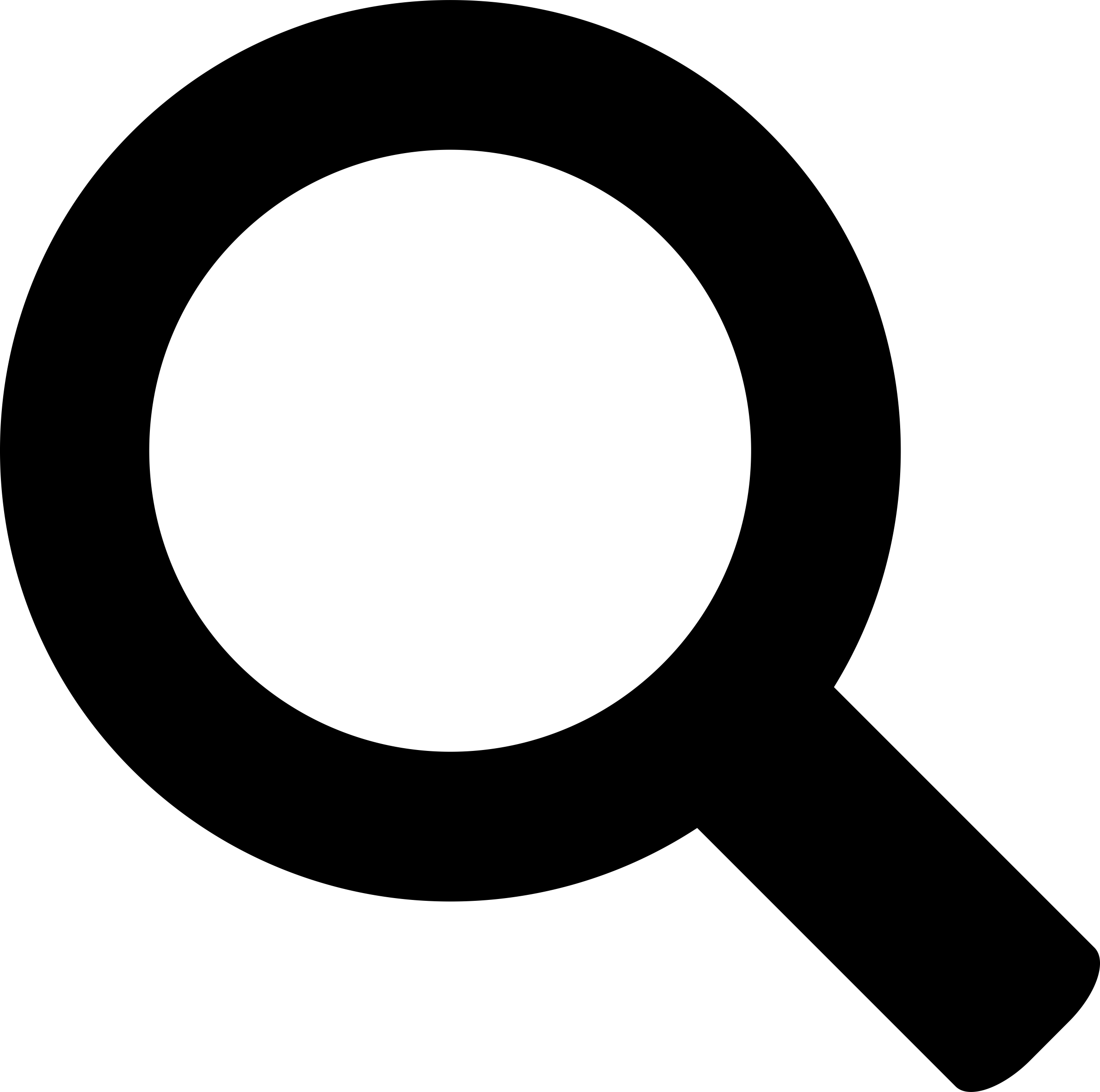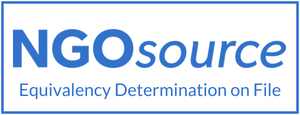State Responses to the Pandemic
The pandemic has thrown up more than a few insights about our current reality. The fact that as human beings we are all intimately connected: health insecurity in the form of a virus knows no borders. The fact that even as we are thus connected, we are not all equally vulnerable: structural injustices and distributional inequalities impact resilience, among others. The fact that the current multilateral system is inadequate to deal with the current situation, bogged down as it is by geopolitical posturing, frustrating thoughts of any form of truly transnational governance[1]. And conversely, the fact that sovereign states alone cannot overcome the disease – in this case, innovation (the vaccine, the antibody test), the means of production (masks, personal protective equipment, ventilators), financial flows (trade, remittances, aid, policy), expertise (scientific) and skills (medical) no longer being bound by manmade borders.
Yet, we see again that policy reactions to the pandemic have been state-centric. In what has amounted to a violation of basic human rights, lockdowns have been announced without warning, leaving hundreds of thousands of migrant workers stranded[2], for example – following a technical, medicalized logic which is removed from a scientific logic that is rooted in the social. Emergency decrees promulgated, but without sunset clauses – a regulatory, state-security approach, often out of touch (as was also witnessed in the counterterrorism context after 9/11) with the compound insecurities on the ground. Many states are racing to adopt[3] new surveillance tools in response to the COVID-19 pandemic, working with the private sector[4] to green-light dragnet monitoring systems, seeking real-time location data from mobile providers or deploying facial recognition. Measures announced are often justified under public health in the same way that previous moves to increase surveillance were justified as falling under the ambit of national security.
States are failing to provide basic health services to their citizens, lacking either the organizational and institutional capacities and/or the political will to do so. Neoliberalism in healthcare systems has led to deregulation, outsourcing, and privatization, which has increased the reliance on market forces and left countries totally ill-prepared to deal with a public health crisis of this kind. This pandemic has shown that a market-first approach has led to competition and hoarding and profiteering, while also increasing aid dependency. Other actors are jumping into this gap. Humanitarian and development organizations, for example, are quickly adjusting their aid services to provide protection and medical services to marginalized communities, and mutual aid groups are popping up all over the world. But on the flip side, criminal, extremist and other violent groups are abusing this crisis to further undermine fragile, absent or non-responsive governments resulting in an increase (often at gunpoint) of their support base for violence and illegal activities[5].
What does Security Mean to You
In our work at Human Security Collective, in engaging with partners in often troubled areas of the world, we usually begin by asking what it is in their local context/environment that makes them feel insecure. And get them to build a picture of what ‘secure’ would feel and look like. Security, after all, is an everyday, felt experience at the individual and community level. It is ‘Human Security’ – where the locus of risk is human-centric and context-specific.
The following are several examples of ways the crisis is being experienced in countries where Human Security Collective works with local partners and communities:
Cameroon: In the Far North region of Cameroon, the pandemic raises complex questions. In a region ravaged by armed combatants belonging to Boko Haram, tight security enforcements and limitations on travel are nothing new. Indeed, some of our partners on the ground attribute the (thus far) low incidence of COVID-19 cases in the Far North to its remote location, relative inaccessibility, and strict monitoring of transport routes. At the same time, however, there has been a notable increase in attacks by members of Boko Haram factions along the Nigerian–Cameroonian border since the beginning of the pandemic – suggesting that militant groups may be taking advantage of the crisis to ramp up their attacks amid the instability. Furthermore, the introduction of social distancing measures is effectively impossible in a society where food and water insecurity are rife, and daily visits to crowded markets and water pumps are essential for most in order to survive. These conditions are heightened in the region’s many refugee camps and IDP settlements which are densely populated by people fleeing the violence inflicted by Boko Haram. This points towards the contextual and complex interdependence between the COVID-19 pandemic and the various other forms of insecurity faced by communities. Among the concrete measures taken so far have been the release of over 200 detainees from the notoriously crowded Maroua prison, as well as the cancelling of Christian and Muslim prayer services in what is a devoutly religious landscape – highlighting the need to engage a diverse range of stakeholders in order to deliver a well-judged, contextual, and human-centric approach to tackling the crisis.
Mali: There are lessons to be learnt from how many countries in Asia and Africa are dealing with the pandemic[6]. One of these is that there is no one-size-fits-all approach. In Mali, for instance, measures to manage COVID-19 have been in place since the middle of March. These include the suspension of commercial flights, the closure of schools and the suspension of sports and public gatherings. But there are no lockdown measures in place per se, neither have places of worship been closed. Support has been provided to health centres for the treatment and care of infected people, with the measures put in place by the Malian government corresponding to the local context, a context that is characterized by an informal economy, a strong social fabric and the influence of religion on government policy. Cases of the disease have not seen an exponential rise so far.
Libya: In Libya, clashes in Tripoli and the western cities have only intensified over the past few weeks, compounding the spread of the pandemic. As our partner Inas Miloud of the Tamazight Women Movement writes[7]:
“We are at home, but it is not safe to be at home, we say ‘corona is below, and the war is above us’. That’s the reality of people. Last week the main hospital in Tripoli was targeted in the bombing. There are electricity shortages, there is water shortage in certain areas in Tripoli and fear for food shortage as well.”
Facing a financial crisis that precedes the onset of the pandemic and is now set to worsen manifold, and with weapons continuing to flow into the country, the impact of COVID-19 further exacerbates the lives of women, migrants and others already disadvantaged. Calls for a ceasefire have so far gone unheeded, and while reported cases of COVID-19 are still low, it is yet another insecurity for the population to deal with.
Tunisia: As we write this paper, Tunisia has gone several days with no new COVID-19 cases. While some are optimistic about what this promises and others fearful of the health crisis that might still come, what is undeniable are the lasting effects of the crisis and the measures taken to contain it.
Tunisia has come to a halt in stages. For more than six weeks, the country was under a total lockdown: the income of many Tunisians disappeared, schools closed and the nation was urged to stay home and stay safe. But when the government announced a social allocation of 200 Tunisian Dinars for poor families, thousands of Tunisians all over the country gathered at post offices and local social affairs offices, standing in line, shoulder to shoulder, disregarding the risk of a disease that might come over a precarity that is certain. These people are part of the approximately 3,222,000 people in Tunisia who live in a situation of severe or very severe vulnerability and who will be hit hardest by this crisis[8]. The long-term measures to combat COVID-19 measures will only deepen their vulnerability and precarity. It will compromise the quality of their nutrition, their access to health care, their housing, the quality and/or access to schooling for their children, their prospects for better lives. The inequalities created and witnessed in times of ‘normality’ will only deepen. The young Tunisian democracy will be put to the test. Will the politicians listen to Tunisians and especially to the most vulnerable? Will they include their voices in decision making? A state and a nation are, after all, only as resilient as their most vulnerable communities.
The Netherlands: The Dutch approach to combatting COVID-19 relies heavily on the expert epidemiologists of the National Institute for Public Health and the Environment (RIVM). What has been framed by the government as an ‘intelligent lockdown’, can be summarized as rules on physical distancing, working from home and quarantining if symptomatic. The current situation has, however, brought to light already-existing social problems, e.g., vulnerable children not able to go to school finding themselves locked down in unsafe homes, an increase in domestic violence, and an increase in the trust deficit between young people from vulnerable neighbourhoods and the local government. A Human Security approach would involve these citizens – including young people from vulnerable neighbourhoods – in security and policy decisions taken during this time and beyond, something that has already been tabled by Dutch policymakers[9].
Human Security Collective has now for several years been involved in the Dutch city of Delft, investing in building the resilience of young people. Through ‘Maatschappelijke Diensttijd’, an initiative of the Dutch Ministry of Ministry of Health, Welfare and Sport, youth are actively engaged in voluntary work. This initiative has shown how informal learning and new experiences through work in the community are extremely meaningful for the development of young people, as well as for social relations in society, including intergenerational solidarity, as also demonstrated during the COVID-19 crisis. Young people provide services for the elderly, offer homework guidance for their younger peers and visit vulnerable children in homes that youth workers have identified. The example of ‘Maatschappelijke diensttijd’ demonstrates the importance of an existing Human Security approach in the current crisis. Another example from a slightly different angle, but which also illustrates the importance of the concept of Human Security, is the concept of Participatory Value Evaluation (PVE)[10]. A large group of Dutch citizens are asked what they would do if they were tasked with policymaking on the exit strategy from the ‘intelligent lockdown’. The study reflects the complexity of the current situation by allowing a diverse group of citizens to make choices on measures and their expected consequences in terms of death rate and the impact on the economy: “People who take part become aware of the effects of their choices; something that they may initially think is a good idea turns out to have negative consequences. It enables you to involve them in the quandaries of decision-making.”
An Appeal for Human Security: Now and Going Forward
In all the contexts that Human Security Collective works in, whether Cameroon, Mali, Libya, Tunisia or The Netherlands, we see how civil society in all its forms, from individual citizens, informal groups to more formal associations and organizations, are taking action to do their bit in addressing the (diverse impacts of the) COVID-19 crisis. While they also have their limitations and face challenges in their work, they do show a huge amount of flexibility, creativity and initiative, helping build resilience in communities. Strategizing on how to continue their work to address the deep inequalities in society continues afoot, while trying to mitigate the impact of COVID-19 and in full realization that the pandemic has worsened the situation of those most deprived.
If the pandemic proves anything, it is that human security or insecurity is a fair indicator of how we will fare during this time. Can I earn my daily wage? Will I keep my job? Can I afford to feed and house myself and my family? Can I afford to stay in and maintain social distance? What does physical distance even mean in my slum/refugee camp? Will I survive the virus? Will I survive the virus on top of the war and the malnutrition and the disenfranchisement?
Answers to these questions will depend on the context, of course. And the context is the disaggregated one of Human Security: of welfare and resilience and rights and empowerment. Accrued over time and through advocacy and sacrifice and good policy and effective governance. And just as easily lost through exploitation, entitlement, poor politics and governance, or a virus.
Speaking of Human Security, it is important to come to a proportionate balance between the perception of threat and insecurity at community level and the overall security measures taken to mitigate these risk. Human Security takes this into account through a contextual analysis of the risks based both on statistics and perceptions, as well as through citizens playing a role in defining security policy and having oversight of executive powers and the security sector in a broader sense.
Human Security enables the checks and balances required to make security measures effective and human. It is an aggregated version of the felt security reality of individuals and communities, in other words a bottom-up approach to security far removed from the practice of security that is reactive, post-hoc, silo-ed and short-term. The latter has, in the current situation, often been exemplified by a swift lockdown (entailing widespread loss of livelihood) and now a possible swift reopening (endangering those on the frontline for whom physical distancing is not a possibility). Short-term financial recompense has been promised by a few, but is nowhere near as comprehensive or indeed widespread.
A pervasive understanding of Human Security (by states, by multilaterals – the UN Security Council has not met on the COVID-19 crisis so far because it is deemed not to fall within its peace and security mandate!) is the key to policy responses that are effective and empathetic. The question is, who will step into the existing power vacuum? And what will this mean for Human Security? It is ironical that the multilateral system has been found so wanting in its response given that Human Security as a concept originated at the UN. Encompassing economic, health, environmental, personal, community and political security, the Human Security approach promises freedom from fear and want. Will it be civil society or citizens themselves who will forge a new paradigm or will there be new forms of collaboration to enable Human Security?
The erosion of civic freedoms and more general democratic principles have gone hand in hand with the multiple crises being witnessed (health, financial, economic). Many countries have executive decrees in place, and many of these impinge on fundamental freedoms such as the freedom of expression and assembly[11]. Increased surveillance, border restrictions and curfews are just some of the measures imposed that have a bearing on our freedoms. Policymakers are faced with a complex (and unenviable) task of weighing up the (health) benefits of enforcing such measures against the risks of eroding/compromising democratic principles. A Human Security approach may help better determine some of these calculations.
The need for the welfare safety net – of more rather than less ‘state and government’ policy and action in this regard (and joint state action, such as at the EU level) – has never been greater. Conversely, neoliberal market-driven solutions are not the need of the hour and have, in fact, contributed to the insecurity currently faced by many. Human Security thus needs to become a central notion in government policymaking and for citizens/civil society organizations. Moreover, the environmentally- and socially-sustainable private sector need to be part of the partnership at government and intergovernmental levels to address the current health crisis, and the related crises to follow.
In times of crisis, the focus is so often on the short term that we are more susceptible to what Naomi Klein dubs the ‘shock doctrine’, where shocks and crises are used to push through questionable, unsustainable policies. This pandemic is a profound shock to the collective system, in ways we are still discovering, and its social and economic impact will be felt for a long time. As Human Security Collective, we work towards an understanding of the current crisis that does not call for a ‘return to normal’, but instead looks critically at how ‘normal’ has got us to where we are. Crises do not always have to go the way of the shock doctrine: history has also shown us that large-scale crises can be catalysts for positive social change. We believe that an understanding of human (in)security – of compound effects/impacts on complex, individual yet interconnected lives – is key to building resilience, individual, community and thereby societal, in order to withstand future shock and build a sustainable future.
[1] Donini, Antonio. 20 April 2020. “Post-pandemic change? Humanitarian action and multilateralism in transnational times”, published in Against Inhumanity http://www.against-inhumanity.org/2020/04/20/post-pandemic-change-humanitarian-action-and-multilateralism-in-transnational-times/
[2] Panday, Vikas. 20 May 2020. “Coronavirus lockdown: The Indian migrants dying to get home”, published on the BBC https://www.bbc.com/news/world-asia-india-52672764 ;
Interview with P. Sainath. 13 May 2020. “Urban India didn't care about migrant workers till 26 March, only cares now because it's lost their services”, published in FirstPost https://www.firstpost.com/india/urban-india-didnt-care-about-migrant-workers-till-26-march-only-cares-now-because-its-lost-their-services-p-sainath-8361821.html
[3] Funk, Ali. 9 April 2020. “Fighting Covid-19 Shouldn't Mean Abandoning Human Rights”, published in Wired https://www.wired.com/story/opinion-fighting-covid-19-shouldnt-mean-abandoning-human-rights/
[4] Klein, Naomi. 13 May 2020. “How big tech plans to profit from the pandemic”, published in The Guardian https://www.theguardian.com/news/2020/may/13/naomi-klein-how-big-tech-plans-to-profit-from-coronavirus-pandemic?CMP=Share_iOSApp_Other
[5] Rosand, Eric; Koser, Khalid and Schumicky-Logan, Lilla. 28 April 2020. “Preventing violent extremism during and after the COVID-19 pandemic”, published in Brookings https://www-brookings-edu.cdn.ampproject.org/c/s/www.brookings.edu/blog/order-from-chaos/2020/04/28/preventing-violent-extremism-during-and-after-the-covid-19-pandemic/amp/
Burke, Jason. 16 April 2020. “Opportunity or threat? How Islamic extremists are reacting to coronavirus”, published in The Guardian https://www.theguardian.com/world/2020/apr/16/opportunity-or-threat-how-islamic-extremists-reacting-coronavirus?CMP=Share_iOSApp_Other
https://institute.global/policy/snapshot-how-extremist-groups-are-responding-covid-19-9-april-2020
[6] Moore, Jina. 15 May 2020. “What African Nations are Teaching the West about Fighting the Coronavirus” published in The New Yorker https://www.newyorker.com/news/news-desk/what-african-nations-are-teaching-the-west-about-fighting-the-coronavirus
[7] “Human Security at Stake”: Policy Brief as part of the ‘Women and Youth as Bridge Builders: Strengthening Resilience in Libya’ programme. May 2020. https://www.cordaid.org/en/wp-content/uploads/sites/11/2020/05/20200508-The-Engendered-Impact-of-COVID-19-in-Libya-PC-8504YV1.pdf
[8] Study by Azzam Mahjoub entitled : “COVID19 pandemic in Tunisia: Inequalities, vulnerabilities to poverty and unemployment”. Published by the Tunisian Forum for Economic and Social Rights.
[9] NOS. 20 May 2020. “Rutte roept jongeren op de revolutie te beginnen” https://nos.nl/artikel/2334527-rutte-roept-jongeren-op-de-revolutie-te-beginnen.html
[10] Developed by Niek Mouter of the Technical University of Delft https://www.tudelft.nl/en/stories/articles/involving-the-public-in-policy-quandaries/
[11] COVID-19 Civic Freedom Tracker by ICNL and ECNL https://www.icnl.org/covid19tracker/




